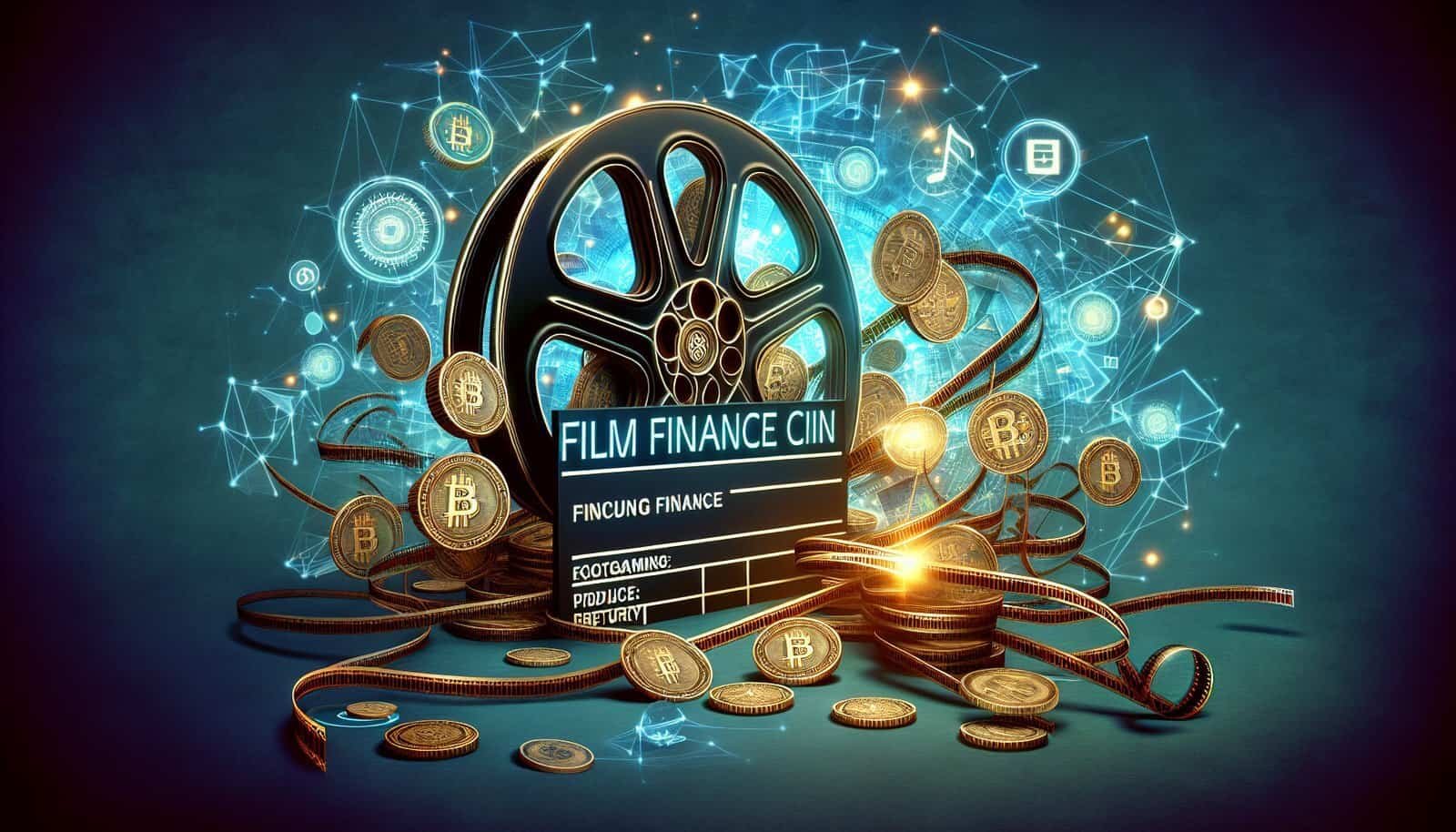Have you ever wondered what Film Finance Coin (FFC) is and how it might revolutionize the film industry? It’s a fascinating topic that combines the creative world of cinema with the innovative realm of cryptocurrency. With digital currencies becoming increasingly popular, it’s no surprise that a specialized token like FFC has emerged to meet the unique financial needs of film production and distribution.
Understanding the Basics of Film Finance Coin (FFC)
Film Finance Coin (FFC) is a digital currency designed to streamline funding in the film industry. Cryptocurrencies have transformed many sectors, offering decentralized, efficient, and secure transaction methods. FFC stands out by blending these attributes with the specific needs of filmmakers, producers, and investors. But what exactly sets it apart, and how does it work?
What is FFC?
FFC is essentially a blockchain-based currency that aims to facilitate financial transactions within the film industry. By using blockchain technology, FFC provides a transparent, secure, and efficient method for funding films and managing financial transactions. This digital coin eliminates traditional barriers in film finance, such as geographic limitations and currency conversion issues, offering a more seamless way to fund movies on a global scale.
Why Use Cryptocurrency for Film Finance?
You might ask why filmmakers would turn to cryptocurrency for funding. The answer lies in the efficiency and transparency that blockchain technology offers. Traditional financing methods often involve lengthy processes, intermediaries, and significant fees. By using a digital currency like FFC, filmmakers can cut down on these complexities and streamline their funding process. This can be particularly advantageous for independent filmmakers or those operating outside major studio systems.
Key Features of Film Finance Coin
FFC encompasses several key features designed to support the unique demands of film finance. For starters, its blockchain foundation means that all transactions are recorded in a transparent and immutable ledger, enhancing trust among investors and producers. Additionally, FFC transactions can be carried out much quicker than traditional banking methods, and often with lower fees, making it an attractive option for investors and filmmakers alike. Let’s explore these features more deeply.

The Mechanics of FFC
Understanding how FFC actually works can help you appreciate its potential impact on the industry. Just like any other cryptocurrency, FFC has its own set of protocols and systems that dictate how it functions within the digital economy.
Blockchain Technology
The backbone of FFC is blockchain technology, which ensures that all transactions are secure and transparent. Every FFC transaction is recorded on a digital ledger that is publicly accessible yet highly secure. This transparency builds trust among all parties involved, as it eliminates the possibility of fraud or manipulation.
Smart Contracts in FFC
One of the most exciting aspects of FFC is its use of smart contracts. These are self-executing contracts with the terms of the agreement directly written into code. This automates much of the negotiation and fulfillment process, reducing administrative overhead and decreasing the time to finalize deals. Smart contracts can be especially useful in managing rights, royalties, and revenue shares in film projects.
Tokenization of Film Assets
Another intriguing aspect is the potential tokenization of film assets. Tokenization involves creating digital tokens that represent a real-world asset or a share in that asset. For instance, rights to a film, or shares in its future revenue, can be tokenized using FFC. This allows for fractional ownership, making it easier for smaller investors to participate in film financing.

Advantages of Using FFC in Film Production
FFC presents numerous advantages for those involved in film production, not only by simplifying funding mechanisms but also by opening up new opportunities for collaboration and investment.
Faster and Cheaper Transactions
One of the most immediate benefits of FFC is the speed and cost of transactions. Traditional international financial transactions can be slow and costly due to intermediary banks and forex conversions. FFC transactions, on the other hand, can be processed almost instantly with minimal fees, facilitating smoother cash flow and resource allocation in film production.
Enhanced Trust and Security
By operating on the blockchain, FFC transactions offer a heightened level of security. Every transaction is recorded on an immutable digital ledger, ensuring transparency and verifiability. This encourages trust between all stakeholders, including producers, investors, and financiers, thus potentially reducing disputes and enhancing cooperative efforts.
Global Accessibility and Investment Opportunities
FFC allows investors from anywhere in the world to participate in film financing, breaking down geographic and economic barriers. This global accessibility not only increases the pool of potential investors but also democratizes investment opportunities, enabling diverse and potentially more innovative film projects to flourish.

Challenges in Implementing FFC
While FFC is poised to offer several benefits, it’s important to acknowledge the potential challenges in its implementation. Understanding both sides of the coin can provide a balanced view of its prospects.
Regulatory Hurdles
Cryptocurrency regulation is still evolving, and different jurisdictions may have different laws governing digital currencies. Filmmakers and investors using FFC may need to navigate these regulatory waters carefully to ensure compliance and avoid legal complications.
Market Volatility
One of the known characteristics of cryptocurrencies is their market volatility. The value of FFC, like other digital coins, can fluctuate significantly, which could impact the financial aspects of film projects. Strategies to mitigate these risks are essential for those looking to use FFC for film finance.
Limited Adoption and Understanding
Being a relatively new concept, FFC’s adoption in the film industry might be gradual. Many filmmakers, investors, and industry professionals may still be unfamiliar with the intricacies of cryptocurrency and may require time and education to understand and trust this new form of finance.

Practical Applications of FFC in Film Making
Despite the challenges, there are already promising applications of FFC in the film industry. Exploring these can provide insight into how this innovation might shape the future of film production.
Crowdfunding Film Projects
FFC can be used as a unique tool for crowdfunding, offering filmmakers a decentralized method to collect funds from a global audience. By tokenizing their films, producers can raise funds by offering fractional ownership or future revenue shares, creating a direct connection with fans and backers.
Simplifying Back-end Operations
Beyond funding, FFC can serve practical roles in the daily operations of film production. From paying talent and crew to managing location fees and post-production costs, FFC transactions can streamline multiple aspects of filmmaking, improving efficiency and reducing administrative burden.
Revenue Distribution
With smart contracts, FFC facilitates automated and precise revenue distribution. Once a film starts generating revenue, predefined conditions in smart contracts can ensure that profits are distributed to investors, talent, and other stakeholders accurately and promptly, ensuring transparency and fairness.

The Future of FFC in the Film Industry
The ongoing evolution of FFC holds exciting potential for the film industry. As more industry professionals begin to understand and adopt digital currencies, FFC could see increased usage and greater influence over traditional financing methods.
Integration with Existing Media Platforms
If FFC becomes widely accepted, it could potentially integrate with existing streaming and distribution platforms, offering users an alternative way to access film content. Subscription packages or pay-per-view options could be directly linked to FFC, expanding payment methods and audience reach.
Evolution of Film Rights and Ownership Models
As FFC facilitates tokenization, it could redefine traditional models of film rights and ownership. By offering more flexible and divisible ownership options, new business models could emerge that promote decentralized and collaborative forms of film creation and distribution.
Broader Industry Influence
Beyond film, the principles and technologies underpinning FFC could extend into other creative sectors, such as music, art, and digital media. The adoption of digital coins across these industries could set a precedent for broader changes in how creative projects are financed and monetized.
Closing Thoughts
Film Finance Coin (FFC) is at the forefront of a potential revolution in film finance, capitalizing on the strengths of blockchain and cryptocurrencies to offer a more efficient, transparent, and globally accessible funding option. While challenges remain, the potential benefits and applications of FFC make it an exciting development in the film industry ecosystem. As digital currencies continue to gain traction, the integration of tools like FFC could shape a new era in cinema, where financial boundaries are minimized, and creative possibilities expanded.
